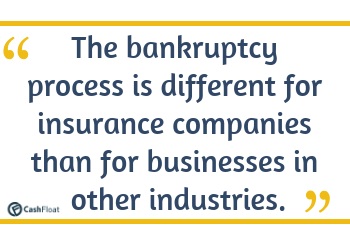Unveiling the Process: What Does It Mean for a Company to Go into Administration?
Unveiling the Process: What Does It Mean for a Company to Go into Administration?
Blog Article
Exploring the Impact of a Company Entering Into Management

Immediate Effect on Workflow
When a service goes right into administration, the prompt influence on its procedures can be substantial, influencing numerous facets of its functioning. Companions and providers may end up being hesitant to engage with the business, influencing the supply chain and possibly causing delays or lacks in important sources.
Economically, the company may deal with limitations on its spending and investment decisions, as managers take control to assess the circumstance and identify the very best training course of action. This can cause cash money flow obstacles, making it hard to satisfy responsibilities such as paying incomes or clearing up invoices immediately - what does it mean to go into administration. In addition, the credibility of the service might suffer, as news of administration spreads, potentially bring about a loss of customer trust and loyalty
Financial Implications for Stakeholders
The immediate functional obstacles dealt with by a business going into administration have significant financial ramifications for stakeholders entailed in the firm's events. Investors usually birth the force of economic losses, experiencing a decline in the worth of their financial investments as the company's supply rates drop. Employees encounter uncertainties concerning their salaries, benefits, and work safety and security, with prospective discharges or lowered settlement packages looming. Suppliers might experience settlement hold-ups or perhaps non-payment for items or services given, impacting their capital and total stability. Furthermore, creditors face the risk of receiving only a portion of the cash owed to them, bring about potential losses and affecting their own monetary health. On the other hand, clients may additionally be influenced by a service entering into administration, encountering disruptions in solution, service warranty issues, or the loss of prepaid solutions or down payments. These financial implications highlight the causal sequence that a company going into administration can have on various stakeholders, emphasizing the importance of positive danger administration and strategic preparation.
Legal Commitments and Duties
Browsing the elaborate internet of lawful commitments and responsibilities is a crucial venture for all parties involved when a company gets in administration. The managers appointed to manage the procedure have an obligation to act in the best rate of interests of the financial institutions. They need to abide by legal requirements, such as preparing reports on the firm's economic scenario and conducting conferences with lenders to go over the administration process.
Employees also have lawful rights that must be supported throughout administration. Depending on the situations, they might be entitled to redundancy pay, notice pay, and other advantages. It is important for administrators to comply with work legislations and guarantee that employees are dealt with relatively throughout the process.
Lenders play a significant duty in management also. They have the right to be informed regarding the business's monetary condition, participate in financial institutions' conferences, and ballot on essential choices. Administrators have to connect transparently with creditors and follow lawful procedures to protect their rate of interests.
Potential for Business Restructuring
In the realm of organization administration, exploring the capacity for restructuring holds substantial assurance for revitalizing a struggling business. When a company deals with monetary distress or operational challenges, restructuring provides a strategic approach to deal with underlying concerns and place the company for future success. By reassessing the business structure, functional procedures, and financial approaches, a service can implement modifications that improve effectiveness, decrease prices, and boost total efficiency.
One trick element of organization restructuring is determining and addressing inadequacies within the company. This may entail streamlining procedures, reallocating resources, or reassessing the product and services offering to far better straighten with market needs. Furthermore, restructuring can include renegotiating agreements, financial debt commitments, or lease arrangements to enhance capital and decrease economic pressure.
Furthermore, restructuring offers a possibility to evaluate leadership his explanation roles, obligations, and decision-making processes to ensure effective administration and responsibility. By executing a well-balanced restructuring strategy, a company can navigate challenging times and emerge more powerful and extra durable in the open market landscape.

Effects for Industry and Market
Thinking about the wider implications for market and market characteristics, it comes to be obvious that a business undergoing restructuring can trigger causal sequences that resound throughout the competitive landscape. When a business enters into management, it can result in boosted competitors as various other companies seek to load deep space left by the battling business. This increased competitors can result in rate wars, technology drives, or mergings and purchases as companies scramble for market share.
In addition, the collapse of a business can additionally influence suppliers Visit This Link and companions within the sector - what happens to employees when a company goes into liquidation. Vendors might deal with settlement hold-ups or even defaults, affecting their own monetary stability. Partnerships that were reliant on the now-struggling company might require to be reevaluated or renegotiated, bring about further disruptions in the market ecosystem
Final Thought

When a company goes right into administration, the instant influence on its operations can be significant, affecting various facets of its operating.The instant operational difficulties faced by a service going into administration have significant monetary ramifications for stakeholders entailed in the company's events (what does it mean to go into administration). These monetary implications highlight the surge effect that a business entering administration can have on different stakeholders, underscoring the relevance of positive threat administration and strategic planning
When a business goes right into administration, it can lead to enhanced competition as various other firms seek to fill the space left by the battling company.In verdict, the influence of a service going into management is considerable, influencing operations, funds, lawful obligations, and possibly blog here leading to restructuring.
Report this page